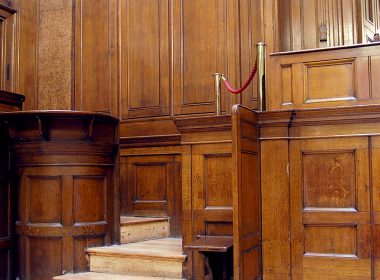Key decisions
- Commissioner of the Australian Federal Police v Hart; Commonwealth v Yak 3 Investments Pty Ltd; Commonwealth v Flying Fighters Pty Ltd [2018] HCA 1
- Falzon v Minister for Immigration and Border Protection [2018] HCA 2
- Australian Building and Construction Commissioner v Construction, Forestry, Mining and Energy Union [2018] HCA 3
- Probuild Constructions (Aust) Pty Ltd v Shade Systems Pty Ltd [2018] HCA 4
PROCEEDS OF CRIME
Statutory interpretation – Proceeds of Crime Act 2002 (Cth) – recovery of forfeited property
Commissioner of the Australian Federal Police v Hart; Commonwealth v Yak 3 Investments Pty Ltd; Commonwealth v Flying Fighters Pty Ltd [2018] HCA 1 (7 February 2017) concerned the proper construction of s 102 of the Proceeds of Crime Act 2002 (Cth) (‘POCA’), which allows for a person to recover property forfeited to the Commonwealth in certain circumstances. Steven Hart was an accountant who was convicted of nine counts of defrauding the Commonwealth. Under s 92 of the POCA, property of Mr Hart and companies with which he was associated was automatically forfeited to the Commonwealth. Companies with interests in the property applied to the Queensland District Court to recover their interests under s 102. That section, as it stood at the relevant time, required the applicants to show that ‘the property was not used in, or in connection with, any unlawful activity’, ‘the property … was not derived or realised, directly or indirectly, by any person from any unlawful activity’ and ‘the applicant acquired the property lawfully’. The Commonwealth Director of Public Prosecutions (‘CDPP’) also applied to the District Court under s 141 of the POCA for a declaration that any property recovered by the companies was available to satisfy any pecuniary penalty order made against Mr Hart. The Court could only make such a declaration if satisfied that the relevant property was subject to the effective control of Mr Hart. The District Court made the recovery orders but not the declaration. Both parties appealed. The Court of Appeal upheld the recovery order, accepting that property would only be ‘derived’ in the necessary sense if it was ‘wholly derived’ from unlawful activity. The CDPP’s appeal was dismissed on the basis that s 141 was to be assessed as at the date of the application, and at that time it could not be shown that Mr Hart had the requisite control. The Commonwealth appealed.




